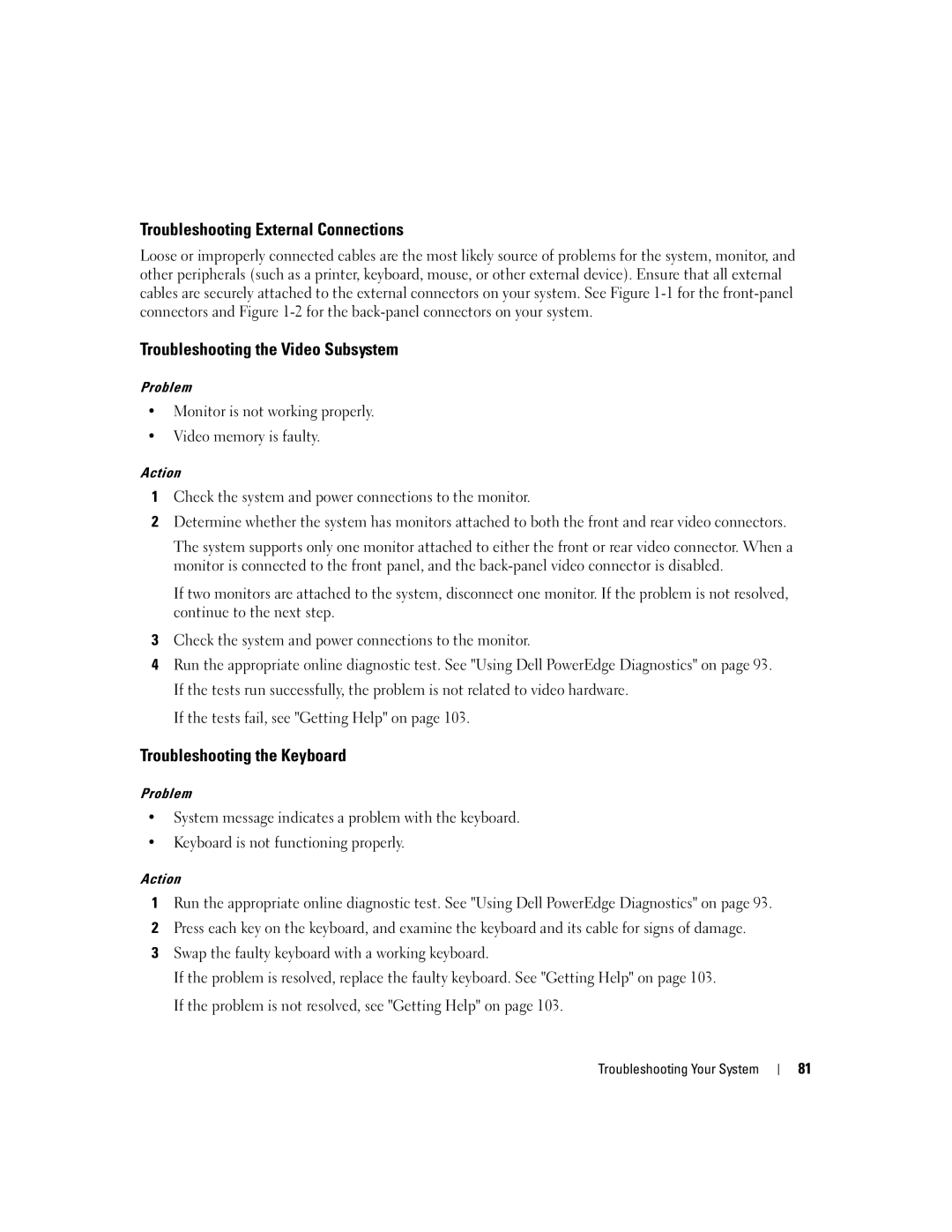Troubleshooting External Connections
Loose or improperly connected cables are the most likely source of problems for the system, monitor, and other peripherals (such as a printer, keyboard, mouse, or other external device). Ensure that all external cables are securely attached to the external connectors on your system. See Figure
Troubleshooting the Video Subsystem
Problem
•Monitor is not working properly.
•Video memory is faulty.
Action
1Check the system and power connections to the monitor.
2Determine whether the system has monitors attached to both the front and rear video connectors.
The system supports only one monitor attached to either the front or rear video connector. When a monitor is connected to the front panel, and the
If two monitors are attached to the system, disconnect one monitor. If the problem is not resolved, continue to the next step.
3Check the system and power connections to the monitor.
4Run the appropriate online diagnostic test. See "Using Dell PowerEdge Diagnostics" on page 93. If the tests run successfully, the problem is not related to video hardware.
If the tests fail, see "Getting Help" on page 103.
Troubleshooting the Keyboard
Problem
•System message indicates a problem with the keyboard.
•Keyboard is not functioning properly.
Action
1Run the appropriate online diagnostic test. See "Using Dell PowerEdge Diagnostics" on page 93.
2Press each key on the keyboard, and examine the keyboard and its cable for signs of damage.
3Swap the faulty keyboard with a working keyboard.
If the problem is resolved, replace the faulty keyboard. See "Getting Help" on page 103. If the problem is not resolved, see "Getting Help" on page 103.
Troubleshooting Your System
81
